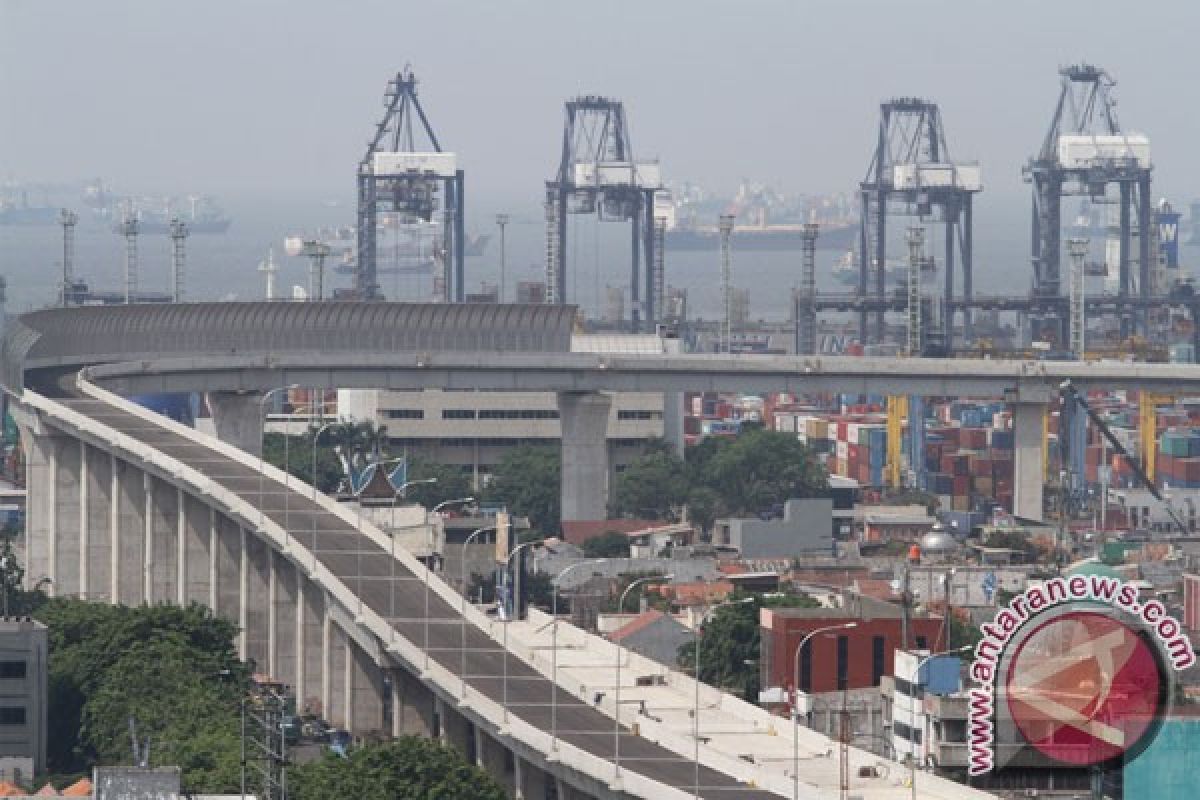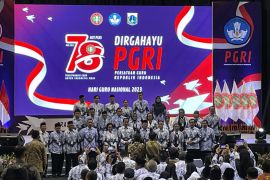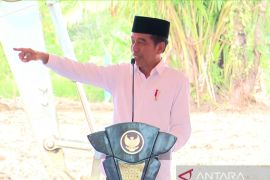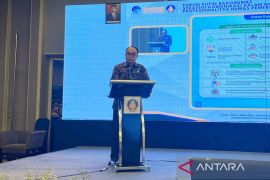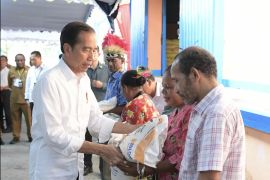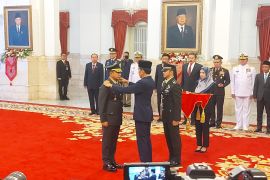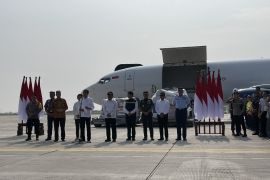The Indonesian archipelago is made up of five major islands, including Sumatra, Java, Kalimatan, Sulawesi, and Papua; and more than 17 thousands smaller islands, though many of them remain unconnected to their neighbors.
Lack of connectivity is more noticeable in the outlying islands of Eastern Indonesia, such as Maluku and North Maluku.
As part of the maritime axis policy, President Jokowi's government plans to build some 24 sea and deep sea ports in the next five years.
"Yes, we plan to develop 24 seaports in the next five years and that is why we visited Tianjin, because its port is the largest and has already had a blueprint for its development over the next 50 to 100 years," Jokowi said, while riding a train that took him from a visit to Tianjin to Beijing last Sunday.
He realized that Indonesias port infrastructure has suffered from neglect and financial constraints over the years, and many of them are in poor shape and impede the countrys internal and external maritime commerce, in the form of revenue losses, time-lags and procedural delays.
The president expressed hope that restoring Indonesias maritime infrastructure, including the development of better ports and ships, could transform the country into a hub for regional maritime trade and commerce.
For the president, inter-island connectivity is expected to enable effective use of island resources and prevent external poaching of maritime resources.
During his visit to Myanmar to attend the East Asia Summit on November 12-13, 2014, President Jokowi said some Asian countries have extended offers to cooperate with Indonesia in the maritime sector.
He noted that the cooperation with Asian countries holds immense potential, but meticulous evaluation was necessary to ensure that all parties benefit and no losses are borne by Indonesia.
"Besides China, South Korea and India are interested in our maritime axis policy and want to build partnerships with Indonesia in the maritime sector," Jokowi remarked.
He revealed that India and South Korea have shown an interest in cooperating with Indonesia in the area of maritime defense, while China is keen to extend cooperation with Indonesia in the maritime industry.
"Two-thirds of Indonesia is made up of oceans, and it attracts them to cooperate with us," Jokowi noted, adding that cooperation in the maritime sector could be in the fields of fisheries, natural gas, crude oil, and other commodities.
But, the president asserted that any form of cooperation should be profitable for Indonesia.
"Therefore, we have to calculate the percentage of profit and loss in this cooperation. What percent will they get and how much will we get. It is good for the cooperation, but for what, if we get nothing," Jokowi added.
In the meantime, the Indonesian Institute of Sciences (LIPI) Head of Research Center for Oceanography, Zainal Arifin, remarked here on Wednesday that the maritime axis should lead to greater economic security.
"The maritime axis should be able to create food and energy security and defense that lead to economic security," Zainal emphasized.
He stated that as President Jokowi was an entrepreneur, so it was natural that the maritime axis concept encompassed a maritime toll road, seaports, shipping and transportation.
According to him, infrastructure development should be prioritized to make Indonesia a global maritime axis and promote the fisheries sector in Indonesia.
"Transmigration of fishermen in the past was successful enough, but the fishery products at the time were not highly salable. In the province of Maluku, for instance, fish catches were extremely abundant, but in a particular season the catch was wasted due to inadequate post-harvest infrastructures," he noted.
Zainal pointed out that Indonesia is a country with abundant marine fishery potential and, therefore, infrastructure development to strengthen Indonesia as a maritime axis should also include fisheries post-harvest technologies.
"Actually, the fishermen have knowledge of several traditional post-harvest technologies, but they should be developed into appropriate technologies," he remarked.
He noted that several post-harvest technologies have been developed. LIPI, for instance, has developed cold fogging technology without the use of fire.
At a discussion about Indonesias self-reliance as a global maritime axis here on Thursday, Director of Archipelago Solidarity Foundation Engelina Pattiasina stated that President Jokowi should elaborate on the direction and implementation of the maritime axis concept.
She said the public had the right to obtain further information about Jokowis maritime axis concept.
"One of the Jokowi-JK presidential tickets missions, as per their election campaigns, was to make Indonesia a self-reliant, advanced and strong maritime state whose priority will be national interest," she added.
Engelina, who is also a former member of the Indonesian Democratic Party of Struggle (PDIP) faction in the House of Representatives (DPR), pointed out that the maritime axis concept contains international, regional and domestic dimensions and covers multi-sector interests.
The absence, however, of any explanation about the concept has led to concerns that the Indonesian maritime policy will complement the grand concept of Chinas Maritime Silk Route, she said.
"This silk road will be very strategic. Looking at Chinas serious campaigns in the region, it seems the route will most likely be created," she remarked.
The plan to help in the realization of the silk road project has led to questions, such as how will Indonesia benefit by its involvement in the project, she explained.
Indonesia must be consistent with its vision to emerge as the main player in the global maritime sector, because it has all the resources required to become a global maritime axis, she noted.
"Therefore, if Indonesia joins the silk road project, it might affect our sovereignty," she said, adding that the government of President Joko Widodo and Vice-President Jusuf Kalla must be aware of this situation.
(T.O001/ INE/A014)
Reporter: Otniel Tamindael
Editor: Priyambodo RH
Copyright © ANTARA 2014
